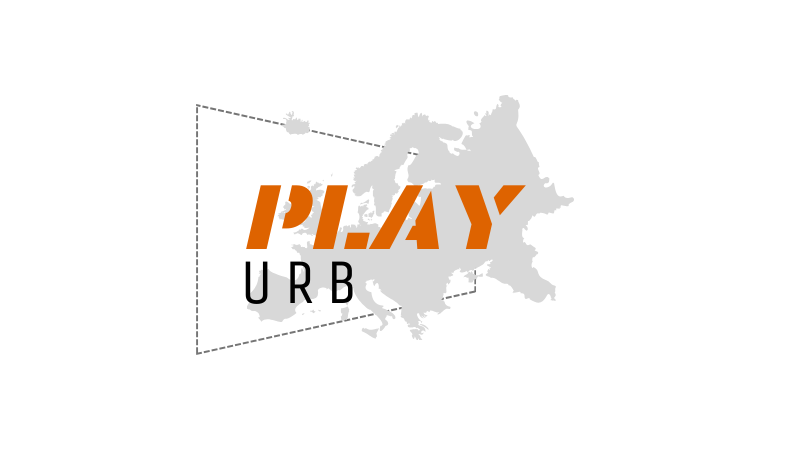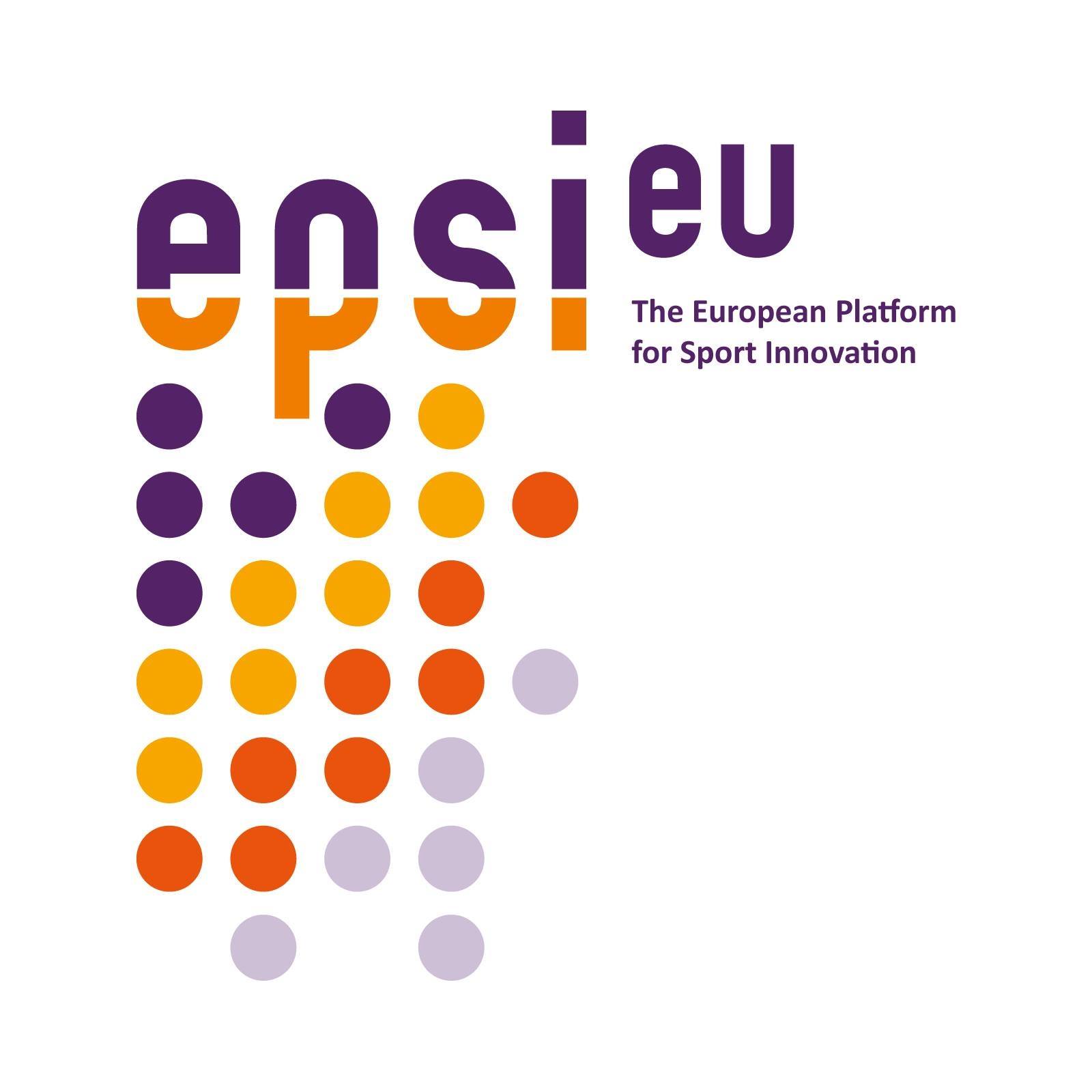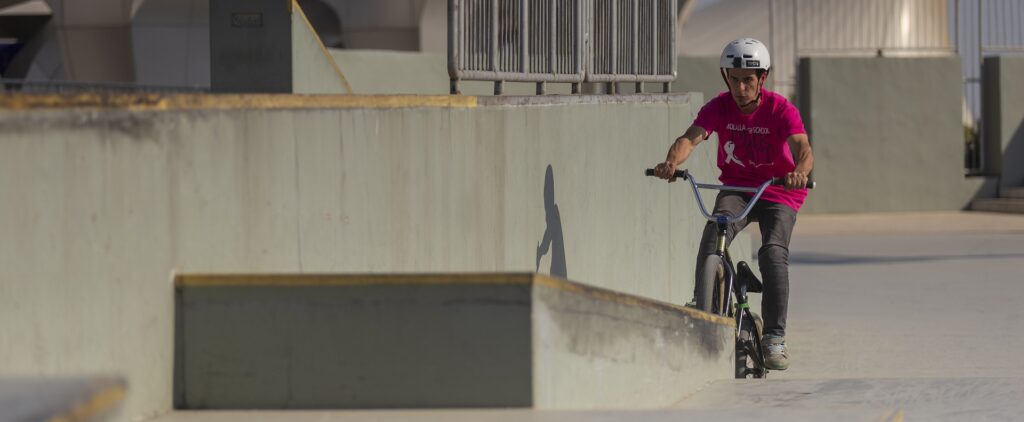
The Project
PlayUrb project aims to assist local organizations (e.g. municipalities, urban & traditional clubs) in order to connect with the local Urban Sports culture, activate young people on them and engage other ‘inactive’ youngsters for developing physical activity and, at the end, let the Urban Sports grow!
At the same time, we will gamify the public space and gather data-driven insights (reports) into these ‘hard to reach’ sports, the public space and measure the effect of the activations initiated for the local municipalities.
Project summary
Within the last thirty years, Governments have been focusing on improving “sport-for-all” policies, so as to provide a healthy active lifestyle. The majority of people think of traditional sports (football, basketball…) as the primary type of community recreational sports. However, alternative unbound sports such as Skateboarding, BMX, Parkour, etc., commonly known as “Urban Sports”, are frequently overlooked by recreational sport professionals but attract many people looking for a new experience beyond the typical recreational sport offerings.
Participation in Urban Sports has many of the same benefits as the traditional. An added benefit of providing these sports is the opportunity to reach a new audience. While many enjoy traditional sports, many others avoid them as a result of negative experiences, a lack of peer involvement, or simply a lack of interest or motivation. For this reason, providing alternative and innovative Urban Sports programs and events may reach people who otherwise would not be involved in sports, particularly young people and the so called ‘inactive youngsters’.
But urban athletes and inactive youngsters are often hard to reach and engage, so we are going to create a hybrid activation program where we will try to involve youngsters through interlinking their own digital world (Social media – online) with the physical world where youngsters are (Urban hotspots – offline).
Project objectives
-
- Develop a modern alternative Urban Sports hybrid activation program for existing urban athletes and inactive youngsters, using tools that interlink their own digital world (social media – online) with the physical world where youngsters are (Urban hotspots – offline).
- Increase the participation level of youngsters (9-25 years old), on a gender-balanced basis, in their local communities and educate them about this alternative kind of sport practice and physical activity.
- Influence and support the efforts of the existing urban athletes to promote their sports and attract the interest of the local communities, with proven digital methods by using social media.
- Make the public space exercise friendly by gamifying the city with low-cost and easy to use gaming elements, also obtaining insights on real time about the urban profile, the usage of the public space and measure the impact of the initiated activations.
- Develop small ‘pop-up’, recreational sport facilities for events in the participating cities that are linked to the digital world.
- Keep existing urban athletes longer committed to Urban Sport through gamification, strengthen the community, by stimulating the digital interaction among youngsters, elite athletes and trainers about Urban Sports.
- Engage more sport organizations, federations and local municipalities with the implementation of alternative Urban Sport activities and contribute to the creation of cooperation networks among them.
Project activities
Work Package 1: Management
The aim of this first WP is to ensure the effective implementation of all project actions and guarantee the financial management and ensure the quality of the implementation of the project and its outputs.
First of all, regarding the project management, the main governing body will be the Steering Committee, led by CityLegends and including one representative from each collaborating institution.
Work Package 2: Preparation
The second WP will involve designing methodology and materials for online-offline sports competitions, selecting venues and equipment, and collaborating with European municipalities. CityLegends will provide guidelines for event organization, fine-tuning digital platforms, and designing campaigns to attract young people. The Steering Committee will select professional athletes and trainers to promote the event and increase its impact.
Work Package 3: Implementation, aftermath and monitoring the impact
The main objective of this third WP will be the organization of the Urban Sport events, combining hybrid online and offline activities, which will take place in each of the five cities involved in the project. The idea is to organize these events in 2023 and 2024 in each of the cities involved in the project.
Urban Sport events will utilize digital tools in CityLegends platform to engage in sustainable aftermath, gamifying events and engaging in digital lifestyles, attracting inactive youth and encouraging their continued participation.
Work Package 4: Communication and exploitation of the project
The dissemination and exploitation plan for the PlayUrb project aims to ensure the project’s sustainability beyond its lifetime by focusing on target groups’ characteristics and needs, shared responsibility among partners, ongoing commitment, dissemination tools, transferability and sustainability, project outcomes, and networking with organizations. These activities will involve current and potential young urban athletes, cities, regions, sport governing bodies, educational institutions, and public authorities.
The plan will also ensure visibility, accessibility, and use of the results at the end of the project and beyond, ensuring maximum impact and sustainability. The project’s outcomes will be used to inform decision-makers about new approaches for promoting Urban Sport hybrid activation programs, based on the needs of cities, ecosystems, and young people.
Partnership:
- CityLegends (CL) – It is an urban sports & culture research and activation start-up/initiative that
supports public organisations on both policy and operational levels with urban in the public space.
Located in Eindhoven as well, CL provides insight into urban, connect and activate young people for
urban - European Platform for Sport Innovation – EPSI (BE) – European Platform for Sport Innovation (EPSI): EPSI is a non-for-profit European association located in Brussels. EPSI is a membership-based networking organisation of Universities, Research Institutes, Clusters, Associations, Federations, Industries and SMEs which focuses on innovation in the area of physical activity/sport
- ACES Europe (BE) – ACES Europe is a non-profit association based in Brussels which assigns every year the recognitions of World Capital, European Capital, Region, City, Island, Community and Town of Sport. The allocation of these recognitions is done by ACES Europe, according to the principles of responsibility and ethics, being aware that sport is a factor of aggregation of the society, improvement in the quality of life, psycho-physical well-being and complete integration within social classes in the community.
- Innovationsmanufaktuur (DE) – Innovation agency and partner of the City of Munich specialising in Sports
- Valencia City Council (ES) – It is the body in charge of the government and administration of the
municipality of Valencia. - Anci Piemonte (IT) – It is the organization of the National Association of Italian Communities with 300+ Northern municipalities including Torino.
- Eindhoven Sport (NL) – It is : It is the body in charge of the government and administration of the municipality of Eindhoven regarding sports.
Latest Project News and events
Building bridges by sharing data: I3-INSHAPE collaborates for SMEs
The I3-INSHAPE Data Portal and Services will be the innovative service for SMEs to scale up to European market, building bridges across regions
A new Road to the Olympics: Cognitive Training will pave the way
The EPSI team will present during the event in Genoa.
SPOKI, Empowering kids trough SportKompas method
SPOKI project aims to increase children’s involvement in sports by using SportKompas, a sport orientation method developed at Ghent University. The project aims to help children between 8 and 10 choose sports that align with their interests and abilities. SportKompas provides guidance, data for teachers, and insights for local governments and universities.





